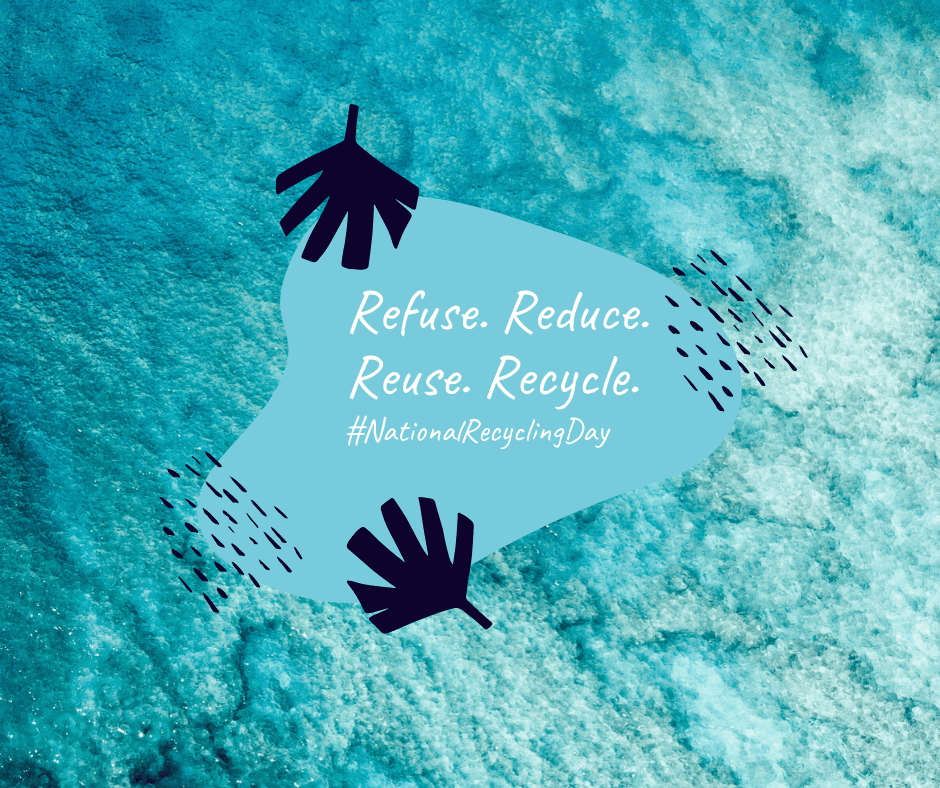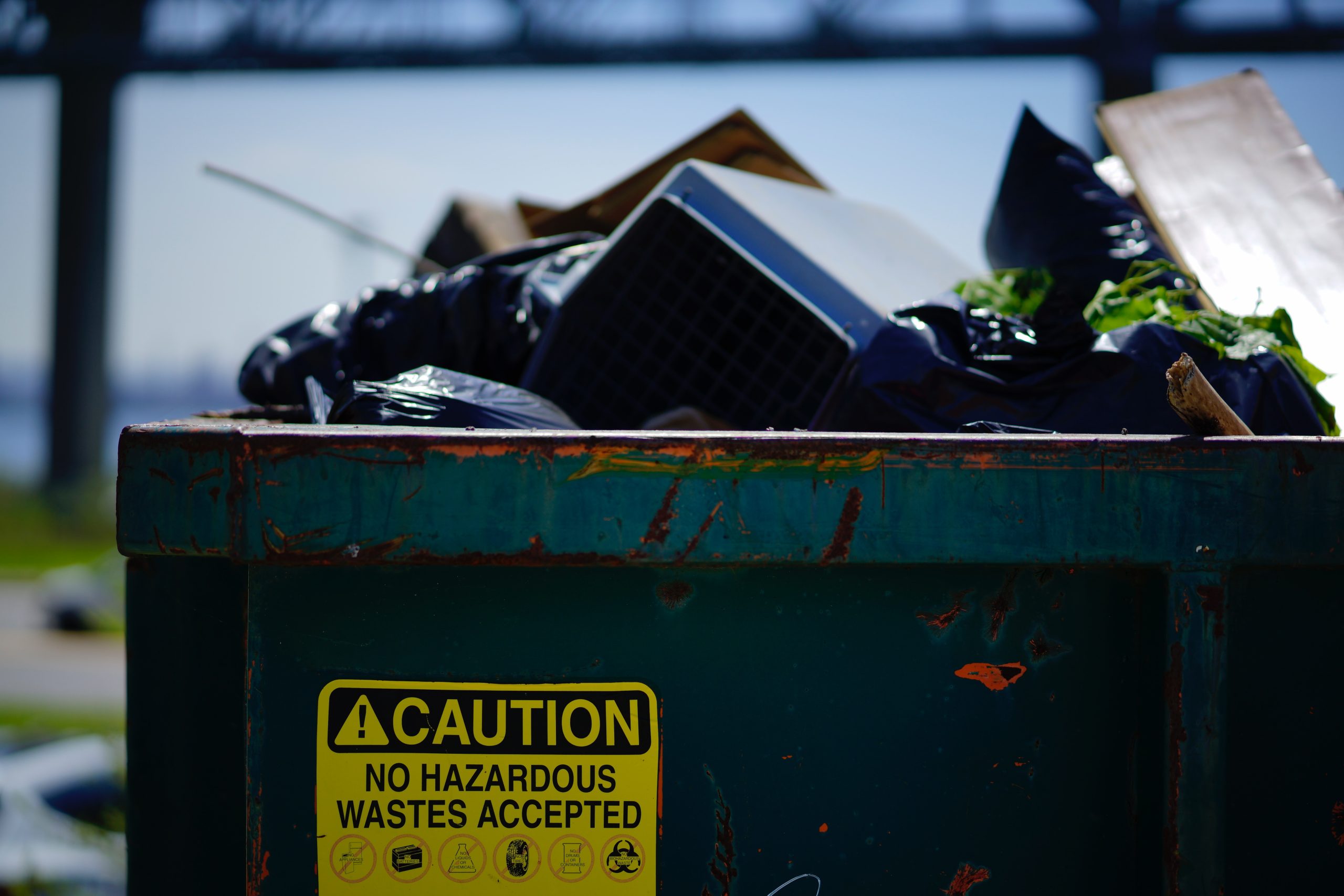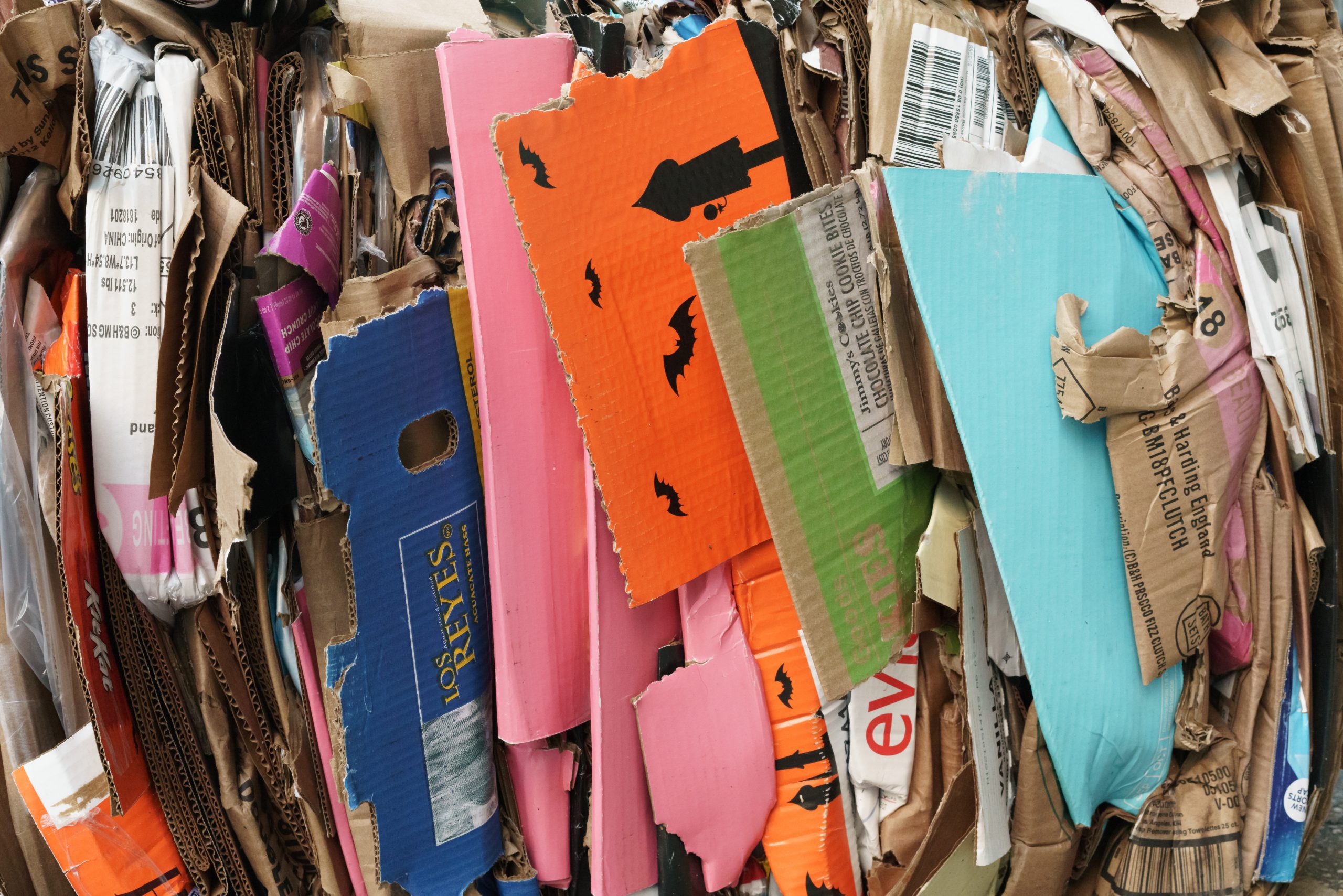
November 15 is National Recycling Day and a great day to spend a little quality time with… your trash. That’s right! We hope you will take a few minutes to take a gander at your garbage today. Do you have one trash can for all your waste at home, or do you sort recyclable materials? If you already separate your trash, great job! Recycling materials that your local waste management can process is a great step in minimizing your individual impact on the planet.
But, did you know recycling is actually the LAST ditch effort to reduce your waste? Most of us have heard “Reduce, Reuse, Recycle” in our lifetime, but many of us have left behind the most important “R” — and the first effort we should make before choosing to consume.
R#1: Refuse. “Do I need this?”
You can save the planet a lot of pain by practicing the first “R” in your everyday life and asking yourself, “Do I need this?” For example, cheap giveaways at trade expos or throwaway trinkets. Now, if the answer is yes, then by all means carry on to the next effort. But, don’t forget to ask yourself, “How can I better prepare myself so I don’t need this item in the future?”
R#2: Reduce. “Do I need all of this?”

Surplus in consumption leads to so much waste and, subsequently, costly energy on waste management. For example, holiday wrapping waste. According to Stanford University, “Americans throw away 25 percent more trash during the Thanksgiving to New Year’s holiday period than any other time of year. The extra waste amounts to 25 million tons of garbage, or about 1 million extra tons per week.” Remaining aware of how much you need, and only taking that amount, can spare precious energy, paper, plastics… and the list goes on. “But, what if I need all of it?” Well, if you simply can’t spare the gift wrap then:
R#3: Reuse. “Can this item help me refuse and reduce now and in the future?”

If you’ve reached this “R,” then you might need to seek products that help you with your waste reduction journey. The good news is reusable products are great at that! Can’t refuse plastic bags at the grocery store (just too many groceries to carry)? There’s a reusable cloth bag for that. Can’t refuse the plastic bottle of water in the airport (we’ve all got to drink)? There’s a reusable water bottle for that (and an increasing amount of reusable water bottle refill stations in airports, too)! Reusing also comes in the form of repurposing your perceived waste product before you throw it in the trash:
Can your old map be repurposed to wrap a gift? Can your old shirt be repurposed as shop rags? Finding a second life for items that would otherwise be wasted will not only save you money, but increase your capacity to refuse and reduce.
Now, when all other efforts fail, there is the final “R.”
R#4: Recycle. “How can I ensure this single-use product does not reach the environment or pile up in a landfill?”

Turns out this is a trick question when it comes to recyclables. While all of us have the best intentions by recycling, it may not be realized how little carefully placed recyclables actually get recycled. The United States Environmental Protection Agency (EPA) estimates that 75 percent of the American waste stream is recyclable, but we only recycle about 30 percent of it. Notably scary is the percentage of plastic waste historically recycled. Of the plastic waste produced between 1950 and 2015, only 9 percent was recycled. If we refuse, reduce and reuse before we must recycle, imagine how much waste we could save altogether.
So, Happy National Recycling Day to the 4th and final “R” in the journey of achieving sustainability. There is no better day to take a hard look at your trash and exercise your profound ability to turn the tide on our planet’s waste problem. For more information on our education and conservation efforts, please visit: www.marinelife.org.
